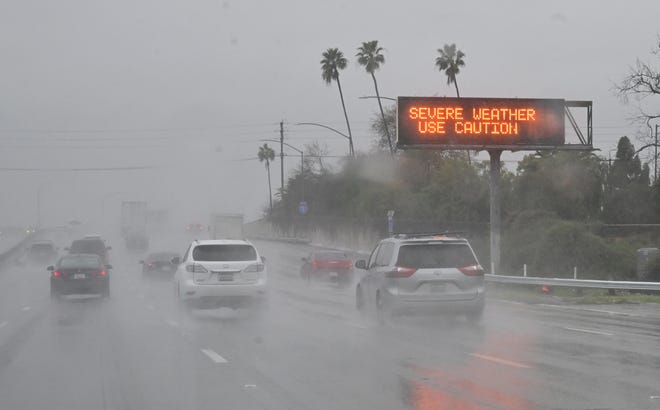Southern California will receive a brief pause in rainfall after a record storm system battered the region, causing hundreds of mudslides and prompting a state of emergency declaration.
The respite will be short-lived, as the next storm in a series of February systems is expected to arrive on Wednesday afternoon, when a “low pressure trough” originating from the waters off Alaska makes its way to the West Coast. National Weather Service.
“Don't let your Wednesday morning break mislead you – More rain and mountain snow “It will come Wednesday afternoon and night,” the weather service said on X. “This system will be able to interact with residual moisture from our current storm to bring one final band of organized rain showers Wednesday afternoon and night.”

A historic weather storm that battered California for several days dumped six months' worth of rain on Los Angeles and broke multiple records for single-day rainfall totals across the state. Heavy rains and strong winds caused at least 475 mudslides, filled the Los Angeles River and killed at least three people.
The system arriving Wednesday carries a higher risk of flooding and mudslides than usual because much of the ground is still saturated from recent storms.
Throughout the day, the combined storm will dump rain for several hours near the California coast, according to AccuWeather. Forecasters expect about a half-inch of rain to fall over parts of the Central Valley through Thursday.
The system that wreaked havoc in Southern California on Monday and Tuesday will bring rain and snow across the Four Corners region on Wednesday at lower intensity, AccuWeather Meteorologist Alan Reppert said.
Parts of Arizona and Nevada, including major cities such as Las Vegas and Phoenix, were under flood warnings, according to the National Weather Service. AccuWeather forecast that heavy rain in Phoenix will reach its peak Tuesday night into Wednesday.
California weather map
California power outage map
US weather monitoring and warnings
National weather radar
Contributing: Associated Press; Christopher Kahn, USA Today

